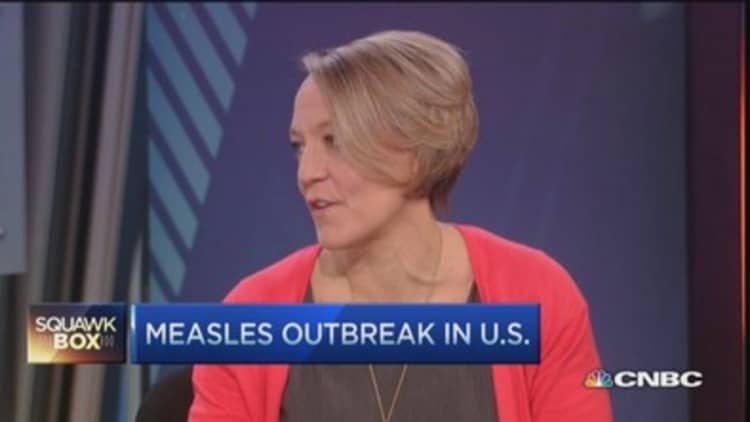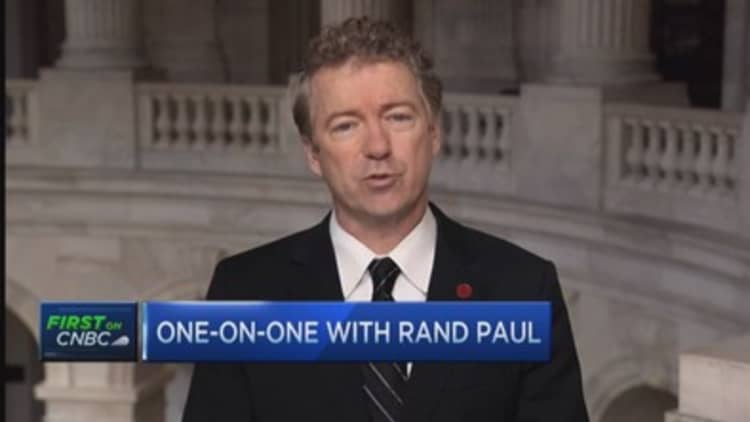
The measles outbreak linked to Disneyland is raising new questions about whether children should be vaccinated, with health officials and politicians fueling new debate on both sides of this issue.
"It really is not just a personal choice but a public health issue, Dr. Gail Shust, pediatrician and infectious disease specialist at Mount Sinai Hospital in New York City, told CNBC on Tuesday. "If a person decides not to vaccinate their child, not only are they potentially putting their child's health at risk, but they're also putting other people at risk."

But supporters of parental choice on vaccines see it differently. Possible Republican presidential contender Sen. Rand Paul of Kentucky, a physician, told CNBC on Monday that vaccinations should be voluntary. He said he's not arguing against vaccines. "I think they are a good thing. But I think the parent should have some input. The state doesn't own our children. Parents own the children."
Read MoreVaccines should be voluntary: Rand Paul
New Jersey Gov. Chris Christie, another possible GOP presidential candidate, got tripped up on the issue Monday while on a trade mission in London. He was quoted as saying parents "need to have some measure of choice." But his office later released a statement, saying "with a disease like measles there is no question kids should be vaccinated."
On the Democratic side, possible White House candidate Hillary Clinton put her stamp on the debate—tweeting Monday night:
Shust agreed—saying in a "Squawk Box" interview that concerns that vaccines cause autism and other disorders are unfounded. "You can never say never, but the overwhelming scientific evidence at this point shows that these vaccines are safe. And even though occasionally you can see some side effects, they are far safer than the potential of contracting these illnesses, and the possible problems of being affected."
Read More


